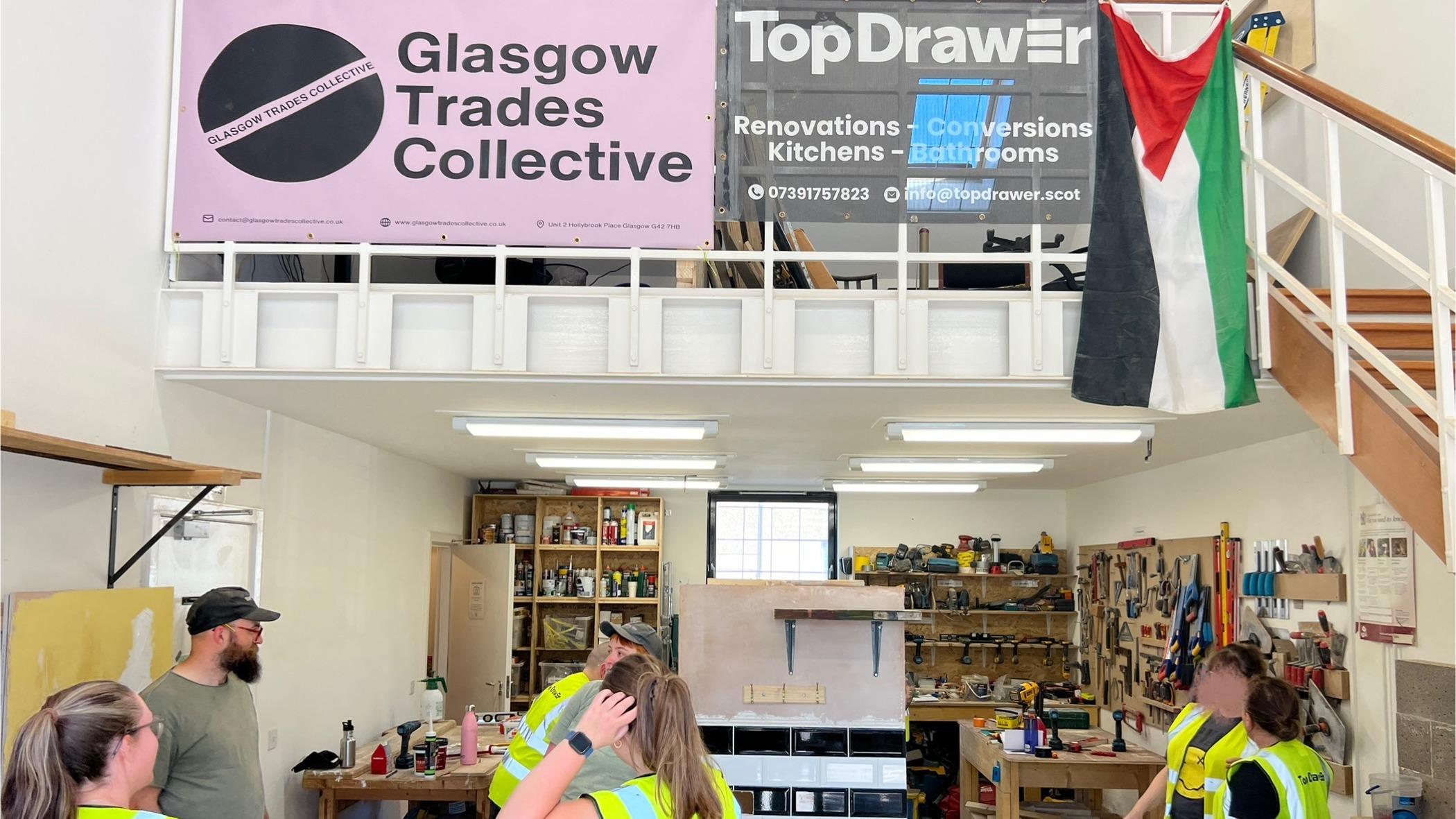
Building beyond the norm: lessons from Glasgow Trades Collective on inclusive construction
Anna, Founder
May 29, 2025
At We Build Too, we believe that the future of construction is inclusive, community-driven, and built from the ground up by people historically shut out.
That’s why my recent visit to Glasgow Trades Collective was both energising and sobering. It highlighted the grit and creativity driving change, as well as the systemic still hold it back.
Whether you're a housing firm, an energy provider, or a national infrastructure employer, the lessons from Glasgow are clear: diversity won’t grow in a toxic environment, and progress needs more than tick-boxes and pilot projects.
From DIY to degrees: pathways with purpose
Stevie Marshall, one of the founders of Glasgow Trades Collective and Top Drawer, spoke openly about how the Collective began. Their courses covering trades and DIY skills have attracted a wide range of people, many of whom are choosing to do their home repairs because they can’t afford or don’t trust outside contractors. Others are exploring a change of career, but face a common blocker: low-paid, inaccessible apprenticeships and a lack of funding for training.
Instructor Clare Morris - a Glasgow School of Art fine art sculpture graduate turned tradeswoman - shared an experience that stayed with me. Like many others, Clare found the leap from training to employment steep and difficult. After struggling to find paid work or apprenticeships, Clare even offered to work for free to build experience. Like many women in the industry, she became self-employed, not out of preference, but because it was the only viable route.
She was even advised, as part of her education, that smaller companies wouldn’t take her on in case she got pregnant!
Clare also spoke about a peer who landed an apprenticeship at a large housebuilder, only to encounter a toxic culture where homophobic slurs went unchecked. Despite her skills and dedication, these experiences led to her leaving the industry altogether.
An industry that desperately needs an additional 250,000 skilled workers by 2028* to meet projected demand.
What’s working: community, WhatsApp, and examples of success
The power of the Glasgow Trades Collective lies in its grassroots approach. Despite limited resources, they’ve built real momentum through community-led initiatives, including:
Community builds: From partition walls at MILK (a social enterprise set up to support women from a migrant background, including refugees and asylum seekers) to pergolas in Paisley, these projects give people hands-on experience of working on a site and a portfolio they can be proud of.
Peer support: A WhatsApp group formed by past participants has become a source of support, especially for women and non-binary tradespeople who are looking to build their network.
Role models: All but one of the primary instructors are women or non-binary, which sends a strong message to trainees about what’s possible.
But even successful initiatives like these are at risk of burning out. Funding is hard to secure. Accreditation is complex. And for volunteer-led groups like this one, the mental load is heavy.
The real problem: it’s the culture, not the pipeline
There’s been a lot of talk in the industry about “getting more women into construction,” but as Stevie pointed out, that’s often where the ambition stops. Large, even dedicated, organisations may want women in the industry, but are less focused on getting them on the tools. That difference matters.
Under-represented workers aren’t leaving (or avoiding) construction because they lack ability; they’re pushed out by the culture.
Toxic behaviour is tolerated. Casual sexism, racism, and homophobia go unchallenged. Some women are even asked to leave apprenticeships because men are “uncomfortable” sharing a van.
No clear entry points. Many want to work for someone, especially when starting, but placements are scarce.
The bar is unfairly high. Clare summed it up best:
“It’s exhausting…I feel like I have to be an even higher standard…just because I’m a woman.”
So, what now?
This visit was a clear reminder that representation isn’t enough. Inclusion must be built into the structure, not painted on after the fact.
Here’s what employers, especially influential ones in energy, housing, and infrastructure, can do:
Fund community pathways: Support training collectives like Glasgow’s with real investment, not just one-off grants, but multi-year commitments.
Create job routes: Provide mentorship, shadowing opportunities, and progressive employment structures, including non-exploitative placements.
Hold sites accountable: Build clear anti-discrimination clauses into your contracts and require inclusive site cultures as part of procurement.
Support business skills: Many women go self-employed out of necessity. Help them thrive with access to business training, networks, and stable income streams.
At We Build Too, we’re building on these insights by launching a community prototype through WhatsApp, connecting women in trades, whether they're well-established or just starting. We’re also working with training providers, employers, and grassroots groups to co-design pathways into construction that work, not just in theory, but in practice.
Let’s build it better, together.
If your organisation is serious about making your workforce more inclusive and diverse, we’d love to hear from you.
Interested in collaborating? Email us at hello@webuildtoo.com
Want to support the grassroots? Check out Glasgow Trades Collective and share their work. Community-led trades training like this is what real change looks like.
*CITB
